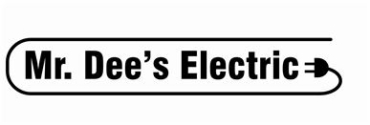Introduction
DIY electrical projects look like a quick way to save money on electrical work, but the moment you touch home electrical wiring, you’re accepting serious electrical safety risks. A single loose neutral, mislabeled breaker, or backstabbed receptacle is all it takes for faulty wiring dangers to surface sometimes immediately, sometimes months later. In this guide, you’ll learn when hiring an electrician is the safer, smarter call; the real costs of amateur electrical mistakes; and how electrical code compliance, electrical permits, and inspections protect your home, your wallet, and your peace of mind.
Serious Safety Hazards
1) Electrocution Risks
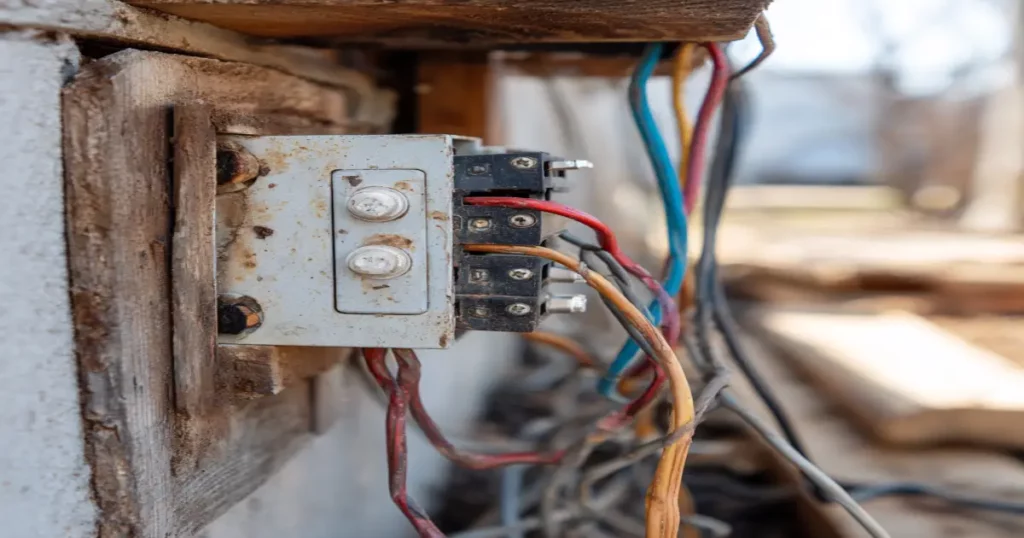
Electricity doesn’t forgive common DIY electrical errors. One slip touching an energized conductor, failing to lock out a circuit, or misusing a tester can cause shock or electrocution, leading to burns, nerve damage, heart complications, or even fatality. These DIY electrical hazards rise the instant a panel cover is removed or a junction box is opened without proper training and electrical repair safety practices. If you’re unsure what you’re looking at, that’s the sign to stop and call a pro electrician.
2) Fire Hazards
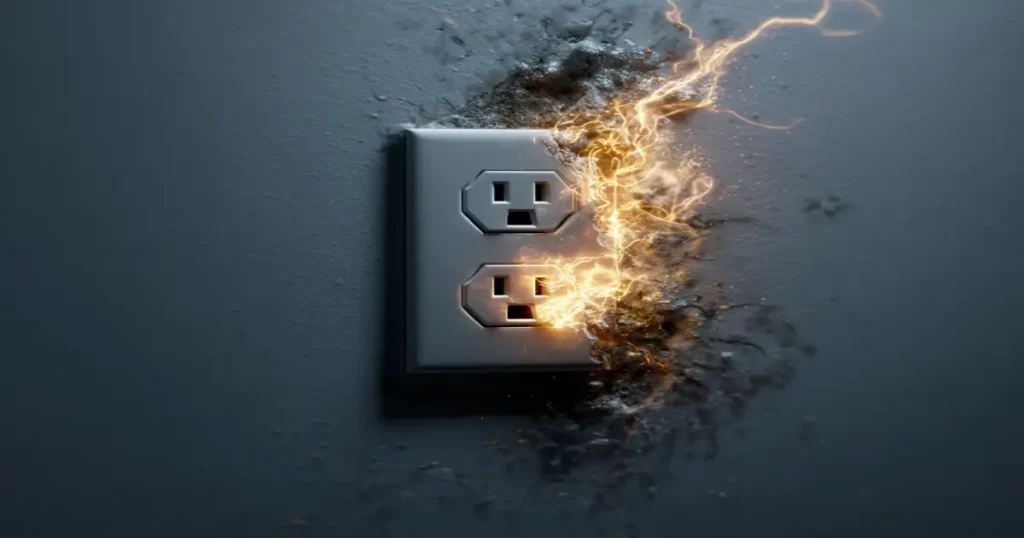
Many electrical fires start quietly: a loose wirenut, an overloaded circuit, or a nicked conductor that arcs under load. Improper splices, wrong breaker sizes, and daisy-chained power strips turn into a high electrical fire risk. And if a blaze starts, water only increases shock hazards and can spread the problem. Professional installation dramatically lowers the chance that improper wiring/overloads/faulty connections will ignite behind your walls.
Hidden Dangers & Long-Term Damage
Non-Compliant or Poor-Quality Work
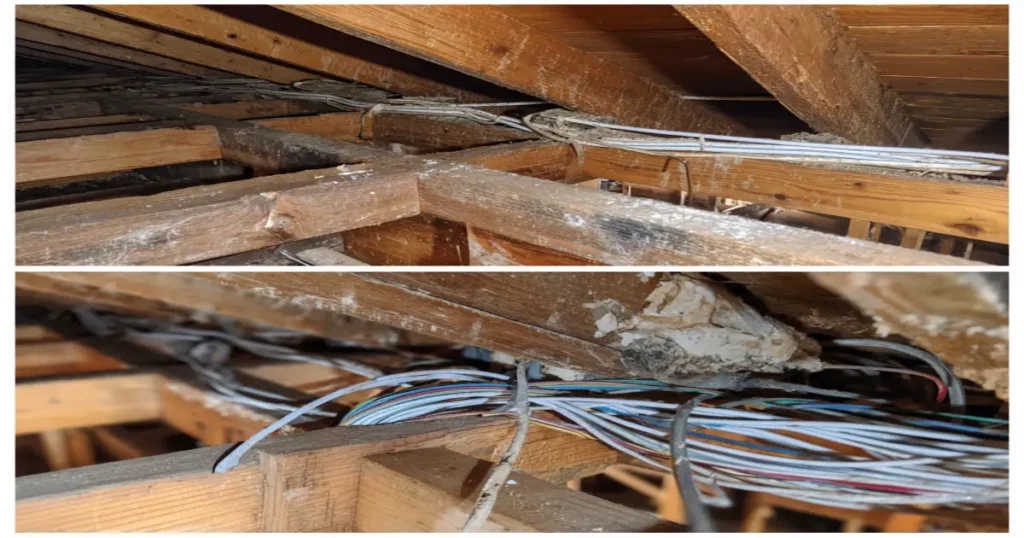
Non-compliant installs like missing box clamps, reversed polarity, or the wrong gauge on a long run may “work” today but degrade over time. Poor insulation, overcrowded boxes, or absent GFCI/AFCI protection create delayed hazards that emerge as shocks, nuisance tripping, or hidden heat buildup. Skipping electrical permits also skips the checkpoint that catches these issues before they become costly repairs.
Impact on Home Value & Resale
Unpermitted DIY electrical work becomes a red flag during sale. Electrical inspection requirements often expose shortcuts, leading to failed inspections, price drops, or contingent repairs under deadline pressure. Buyers, lenders, and insurers prefer documented work by a licensed electrician who followed electrical code compliance from the start.
Legal & Financial Pitfalls
Building Code & Compliance
The National Electrical Code (NEC) and local amendments exist to prevent shocks and fires. Hiring an electrician ensures proper conductor sizing, breaker selection, grounding/bonding, and GFCI/AFCI protection all areas where DIYers most often err. Pros pull the right electrical permits, meet electrical inspection requirements, and leave a paper trail proving the system is safe and lawful.
Insurance & Liability Exposure
Insurance and electrical work are linked: unpermitted or non-compliant DIY electrical jobs can jeopardize coverage. If an incident occurs today or years from now homeowners may face denied claims, fines, or personal liability, especially if someone is injured due to amateur electrical mistakes. Passing inspection with a licensed electrician protects your claim history and your finances.
The Professional Difference
Why Hire Mr Dee’s Electric Service (Licensed Electricians)
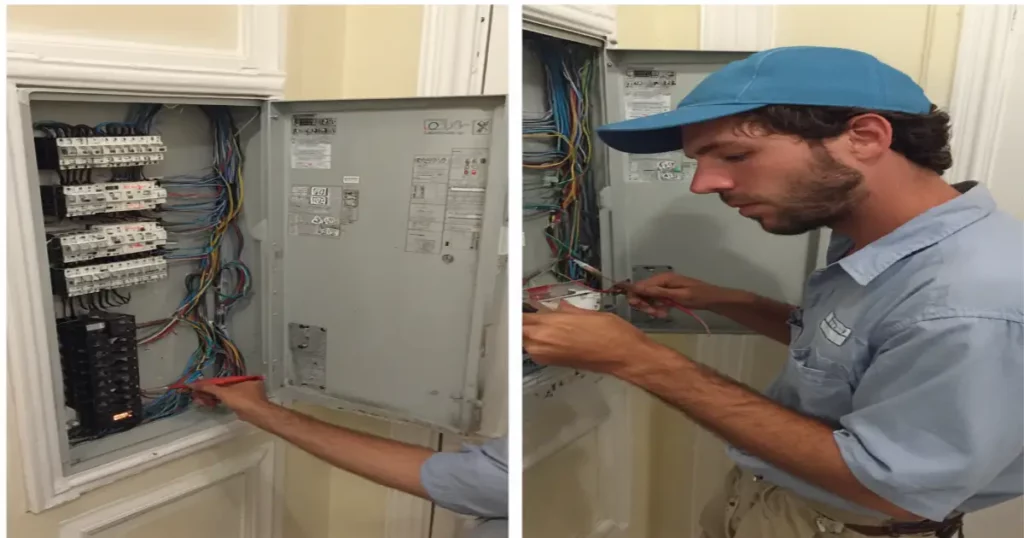
Expertise & Experience
From outlet repairs to full rewiring, Mr Dee’s licensed team delivers code-compliant results that reduce electrical safety risks and avoid faulty wiring dangers the exact areas where common DIY electrical errors happen.
Safety First
Pros use the right tools, PPE, lockout/tagout procedures, and testing sequences to ensure electrical repair safety at every step workflows DIYers typically don’t have.
Insured & Reliable
Work is bonded and insured, so you’re never left holding the bag if something goes wrong critical for insurance and electrical work peace of mind.
Efficient & Cost-Effective
Yes, professional electrician cost is real but paying once for a correct, documented installation beats paying twice for fixes, failed inspections, or damage. In practice, hiring an electrician is often the most reliable path to truly saving money on electrical work.
Excellent Reputation
Customers consistently cite thoroughness, reliability, and value exactly what you want when safety and home electrical wiring are on the line.
Don’t Risk It Book a Licensed Electrician
DIY electrical might feel cheaper, but the hidden costs electrical code compliance failures, electrical fire risk, insurance issues, and liability add up fast. For anything beyond the most basic tasks, know when to call a pro electrician. Schedule your visit with Mr Dee’s Electric Service today and get safe, inspected, and compliant work from a trusted licensed electrician.
FAQ: DIY Electrical vs. Hiring a Pro
Is DIY electrical really worth it to save money?
Usually not. Any short-term savings can be wiped out by electrical safety risks, failed inspections, or damage from faulty wiring dangers. A licensed electrician delivers documented, code-compliant work that protects your home and policy often the smarter path to truly saving money on electrical work over time.
When should I call a pro electrician instead of doing it myself?
If it involves home electrical wiring (new circuits, panel work, GFCI/AFCI protection, rewiring, or troubleshooting tripping breakers), pull in a pro. Signs to act now: burning smells, warm outlets, frequent breaker trips, flickering under load, or buzzing from fixtures. These are classic DIY electrical hazards where hiring an electrician reduces risk immediately.
Do I really need electrical permits and inspections for small projects?
Often, yes. Many upgrades require electrical permits and must pass electrical inspection requirements. Permits trigger checks for electrical code compliance (NEC + local rules) so work is safe, legal, and insurable. Skipping permits can lead to fines, rework, and problems at resale.
How can DIY electrical affect insurance and resale value?
Unpermitted or non-compliant work can jeopardize insurance and electrical work claims and make you liable if someone is hurt today or years later. During a sale, inspectors flag amateur electrical mistakes, which can slow the deal, cut your price, or force repairs under deadline pressure.
What are the most common DIY electrical errors that cause fire or shock?
Typical issues include improper splices, overloaded circuits, loose connections, mismatched wire/breaker sizes, and other common DIY electrical errors. These raise electrical fire risk and shock hazards. The safest fix is bringing in a licensed electrician who builds to code and documents the work.
